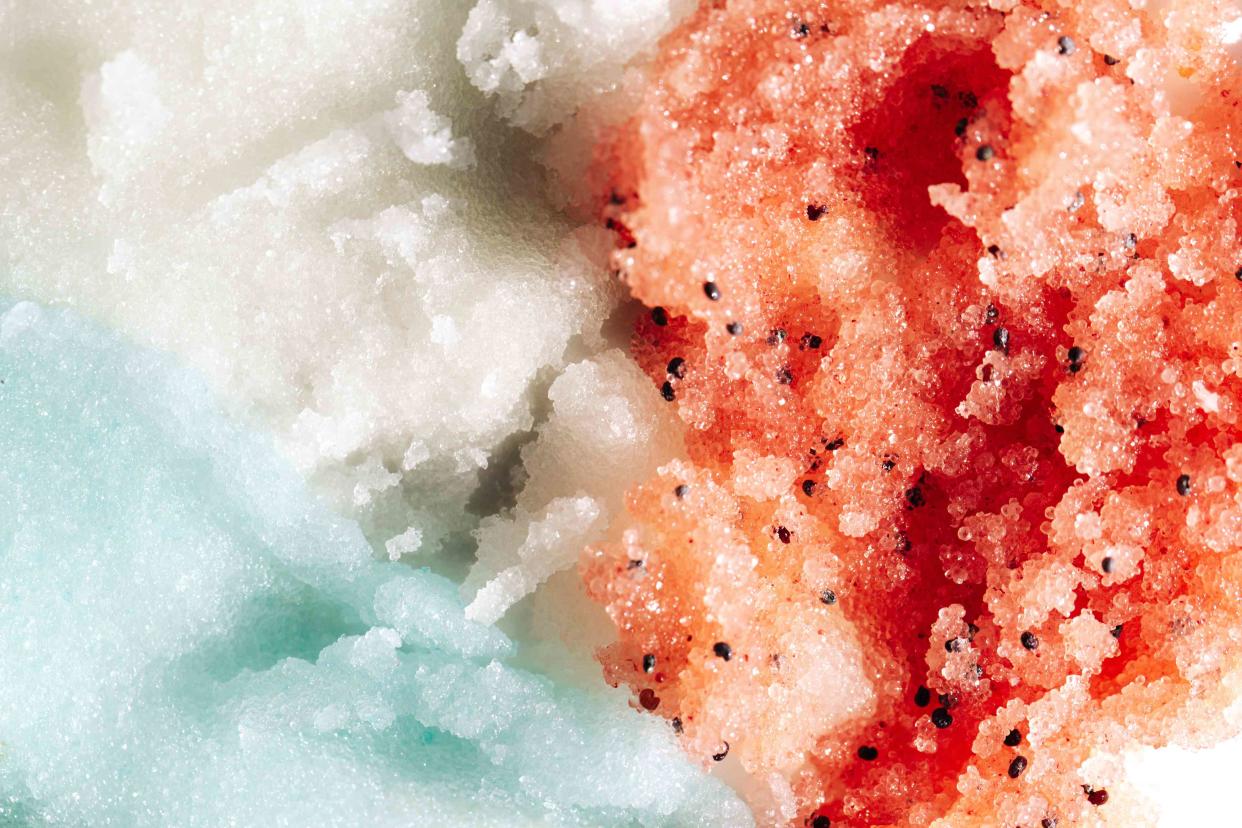What Is Trehalose? A Natural Sugar That Could Have Many Potential Health Benefits

Anna Efetova / Getty Images
Fact checked by Nick Blackmer
Trehalose is a naturally and commercially produced sugar that is used as a sweetener and stabilizer in some food products.
Some research suggests trehalose has potential to be used to manage some metabolic diseases but more studies are needed.
Research from 2018 associated trehalose with a rise in C. diff infections but newer research disputed this claim.
Trehalose is a naturally occurring sugar found in some mushrooms, seaweed, honey, and yeast. This sweetener has been commercially produced in Japan since the 1990s. Recently, trehalose has been gaining attention among scientists for its potential use as a food stabilizer and therapeutic.
A new review published in Nutrients suggests that trehalose could be used to manage certain metabolic diseases and it may support the gut microbiome as a prebiotic. Trehalose can also be used as an effective food preservative.
“It can protect foods against discoloration and various chemical reactions. It’s a functional additive in addition to a sweetener,” Patrick Gibney, PhD, a co-author of the review and an assistant professor of food science at Cornell University, told Verywell.
Gibney added that trehalose has “some potential health benefits,” but more studies are needed to confirm these observations.
Some food scientists and manufacturers are already incorporating trehalose into more products. The Food and Drug Administration (FDA) granted trehalose “generally recognized as safe” status in 2000, and the sweetener has been included in thousands of food products including baked goods, processed vegetables, and seafood.
It’s about half as sweet as table sugar, but it’s used in food science as more than just a sugar alternative, according to Anqi Chen, PhD, an assistant professor in the Science Center for Future Foods at Jiangnan University in China who co-authored the review with Gibney.
“Apart from providing sweetness, this sugar alternative also prevents the formation of ice crystals in ice cream and sorbets, prevents oxidation, improves crispy texture in baked goods, and prolongs shelf life by binding the moisture,” Chen told Verywell in an email.
Trehalose is broken down in our bodies by the trehalase enzyme. But for people who seem to lack this enzyme, trehalose can lead to nausea and other digestive complications. This is rare and is mainly seen in a small percentage of people living in Greenland.
Does Trehalose Have Any Health Purposes?
Medical experts are still trying to understand how trehalose could be used to manage certain health conditions.
A 2021 paper raised the possibility of using trehalose as a treatment for neurodegenerative diseases like Parkinson’s and Huntington’s disease. Current research suggests that trehalose works by causing autophagy, a natural process where cells break down and repurpose certain proteins that otherwise contribute to diseases. However, more studies are needed to test this theory.
Some researchers are also interested in using trehalose in diabetes management potentially. A randomized controlled trial in 2020 examined glucose tolerance in healthy individuals who took a small daily dose of trehalose, compared to those given table sugar. The results suggested that trehalose improved glucose tolerance in some people who don’t have diabetes and it may help people with prediabetes maintain health.
Jamie K. Alan, PharmD, PhD, an associate professor in pharmacology and toxicology at Michigan State University College of Human Medicine, told Verywell in an email that there are a few trehalose therapeutic products available on the market right now, and side effects appear to be minimal at doses below 50g.
“This is something to watch, and I expect to hear more about this compound in the future,” Alan said.
Does Trehalose Make C. diff Worse?
The FDA considers trehalose to be generally safe. However, a study published in 2018 warned that the rise in trehalose consumption after FDA approval may have contributed to the growing “epidemic and hypervirulent strains” of Clostridioides difficile (C. diff).
C. diff infections are associated with diarrhea and colon inflammation and can be life-threatening for older adults or those with weakened immune systems. It is a serious infection, and the 2018 study led to concerns that trehalose might not be safe for consumption.
But other studies have since disputed the claims and said that trehalose was not responsible for a rise in C. diff infections.
Gibney discussed the conflicting C. diff research in his recent review, stating that even though trehalose likely did not cause C. diff infections, more studies are needed to look at the effect of different sugars on the gut microbiome.
“There could be many types of sugars that have positive prebiotic effects if they help promote the growth of beneficial microbes in the microbiome,” Gibney said, adding that scientists should examine different sugars “for their effects on the human microbiome and how those effects alter human physiology in either positive or negative ways.”
Trehalose is already used on the market and many experts think this will start appearing in more products soon. It is considered safe for most people to consume and for now there isn’t enough evidence to say that it offers significant health benefits.

